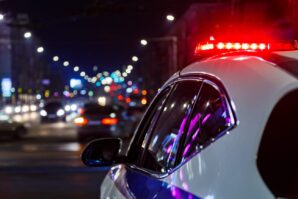
Revaccination of 996 residents of Sarajevo Canton with Pfizer vaccines will be performed today in the hall “Juan Antonio Samaranch” (Zetra) in Sarajevo. These are citizens who received the first dose of the vaccine on June 1 this year, the Sarajevo Canton Health Center announced.
The Medicines Agency of Bosnia and Herzegovina has approved the use of a series of Pfizer vaccines from the last delivery, and they have been delivered to the Sarajevo Canton, allowing the revaccination process to begin.
The Health Center asked the citizens to respect the terms they received in the call for revaccination, the Protocol and Press Service of the Sarajevo Canton announced.
In the past 24 hours, 672 samples were registered with the Public Health Institute of the Federation of BiH, seven of which were positive for SARS-CoV-2. New cases have been registered in Tuzla and Sarajevo Canton.
So far, a total of 714,670 samples have been tested in the Federation of BiH, and SARS-CoV-2 has been confirmed in 133,946 persons. No deaths were reported in the Federation of BiH in the past 24 hours, the entity’s Public Health Institute said.
In the last 24 hours, at the Institute of Public Health of the Republika Srpska, the University Clinical Center of the Republika Srpska, the University Hospital in Foca and the Hospital Sv. Vracevi in Bijeljina 78 laboratory samples were tested and no new coronavirus (SARS-CoV-2) cases were registered.
In the last 24 hours, no deaths from the effects of coronavirus have been reported to the RS Institute of Public Health.
So far, 64,346 cases of coronavirus have been confirmed in that entity, and a total of 3,781 people have been confirmed to have been tested for coronavirus.
In the Brcko District, 38 samples were tested, and no one tested positive, Fena news agency writes.
In the Laboratory for Molecular Genetic and Forensic Testing at the Faculty of Veterinary Medicine in Sarajevo, there are five positive samples for coronavirus that will be subjected to further testing, since they could be potentially dangerous mutations.
As confirmed by the head of the Laboratory and a member of the Crisis Staff of the Federal Ministry of Health, prof. dr. Teufik Goletic, four samples belong to foreign citizens, and one to a citizen of Bosnia and Herzegovina (BiH).
“The reason these samples are suspicious is that they have irregular curves on PCR. However, this does not necessarily mean that it is a coronavirus delta strain, although there is a possibility. These are samples that must be sequenced in order to determine with certainty which mutation it is. It may not be a delta strain, it may be a mutation of the British strain which is dominant here, or the new, alpha strain of coronavirus,” told Goletic.
He added that there is no reason to panic because, as he repeated, it is still unknown whether it is a delta strain, and if so, Goletic claims that the existing vaccines have shown significant effectiveness against this strain as well.
“The largest number of studies, primarily those conducted in the United Kingdom (UK), the country that has done the largest number of coronavirus sequencing in the world, have shown that the vaccines Pfizer and AstraZeneca, which were included in the study, are effective against this strain. Actually, they’re a little less effective, from 12 to 17 percent, but they are still extremely effective vaccines. I hope that we will get them in larger quantities as soon as possible so that we can start with real mass immunization,” Goletic concluded.
To recall, the delta strain is a double genetic mutation of the coronavirus in its surface protein – E484Q and L452R, which indicates the exact position of the genome. Other known strains, which the World Health Organization (WHO) also named after letters from the Greek alphabet, have individual mutations. It first appeared in India, and is claimed to be much more contagious than other strains, but, it is still not known much about it, Klix.ba writes.
E.Dz.















